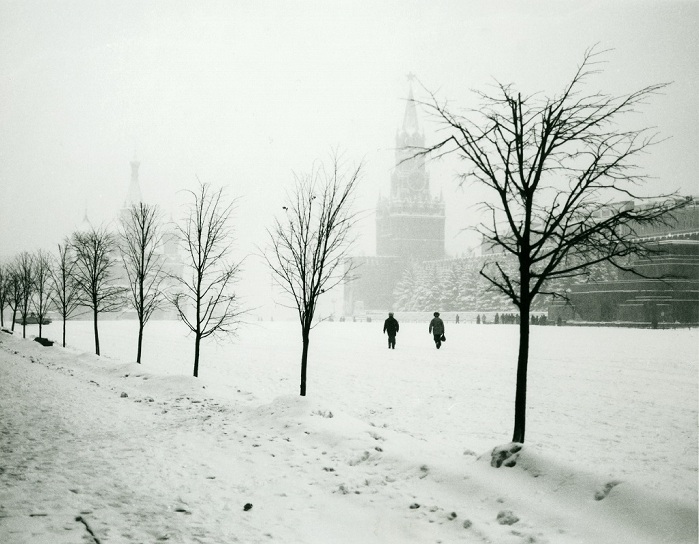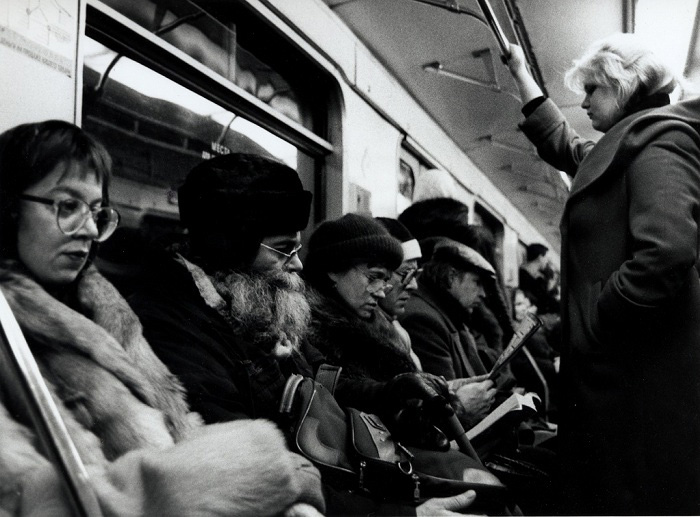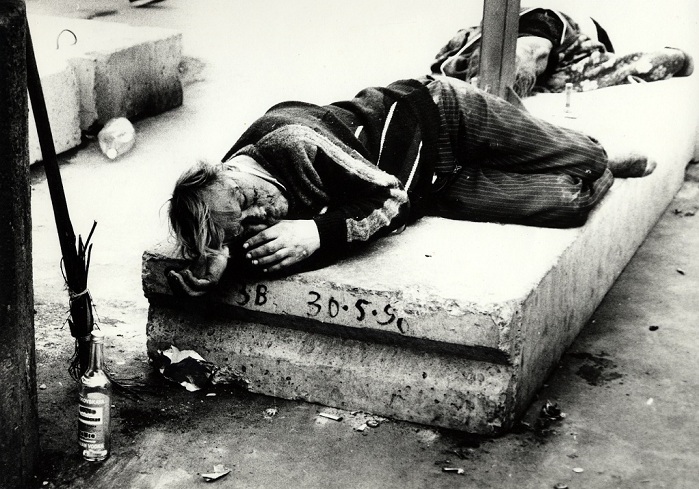In some ways these pictures reinforce a preconception about Russia. Harsh winters, alchoholism, poverty. Everything in shades of grey. It's Grim up North. Moscow has changed a lot, last time I was there, it looked more like Las Vegas with dazzling arrays of neon lights. It's easy to see where global warming is coming from - the lights around GUM Department Store themselves must surely have contributed 0.1 C or so to global temperatures. But in 1993 Moscow really did feel more black and white than now. Photographing in colour would probably not have made much difference. Everyone wore dark leather jackets or dark brown furs. Anyone wearing anything bright had to be a foreigner. There were few neon signs - most shops were still called things like "Meat No.9" or "Bread", and the only thing you could guarantee about their produce was that it would be meat or bread, and that it would be stale. Irish House on Arbat held Moscow's only western style bar, the Irish Bar, until Rosie O'Grady's opened a year or two later. The shop in Irish House was the only western style shop, and the only place in Moscow that sold milk that hadn't gone off. It was brought in fresh all the way from Ireland more or less daily. How it was made it through the notoriously slow and bureaucratic Russian Customs fast enough to keep fresh was a mystery - some Customs official somewhere must have become very rich.
In short, to a foreigner, who always had the option of leaving the place when it got too much (which it did frequently), Russia felt exotic and romantic, a living and breathing Le Carre novel, where anything might happen, and often did.
I rented my first flat at Taganka, opposite the avant garde theatre which had constantly been at odds with the Soviet authorities, where Vysotsky had been a lead actor. Vysotsky was a kind of Soviet superstar singing poet - something like the Beatles rolled up into Louis Armstrong (his voice had something in common) rolled up into T.S. Eliot. When he died and was laid out at the Taganka theatre, the Soviet authorities tried to keep news of his funeral quiet, but tens of thousands of people turned out to attend - so many that the attendance at the Olympic events that were in full swing dropped noticeably that day.
After I had been at Taganka a year or so, there was a general renovation of the appartment building, which involved taking out the pipework, and rats began to run around in the flat using the holes left by the pipework, one of them strolling casually through the kitchen during tea and another waking me up by running across my bed at night. I moved from there shortly after, not so much driven away by the rats as by a lunatic landlord who insisted on visiting regularly using his own key.


